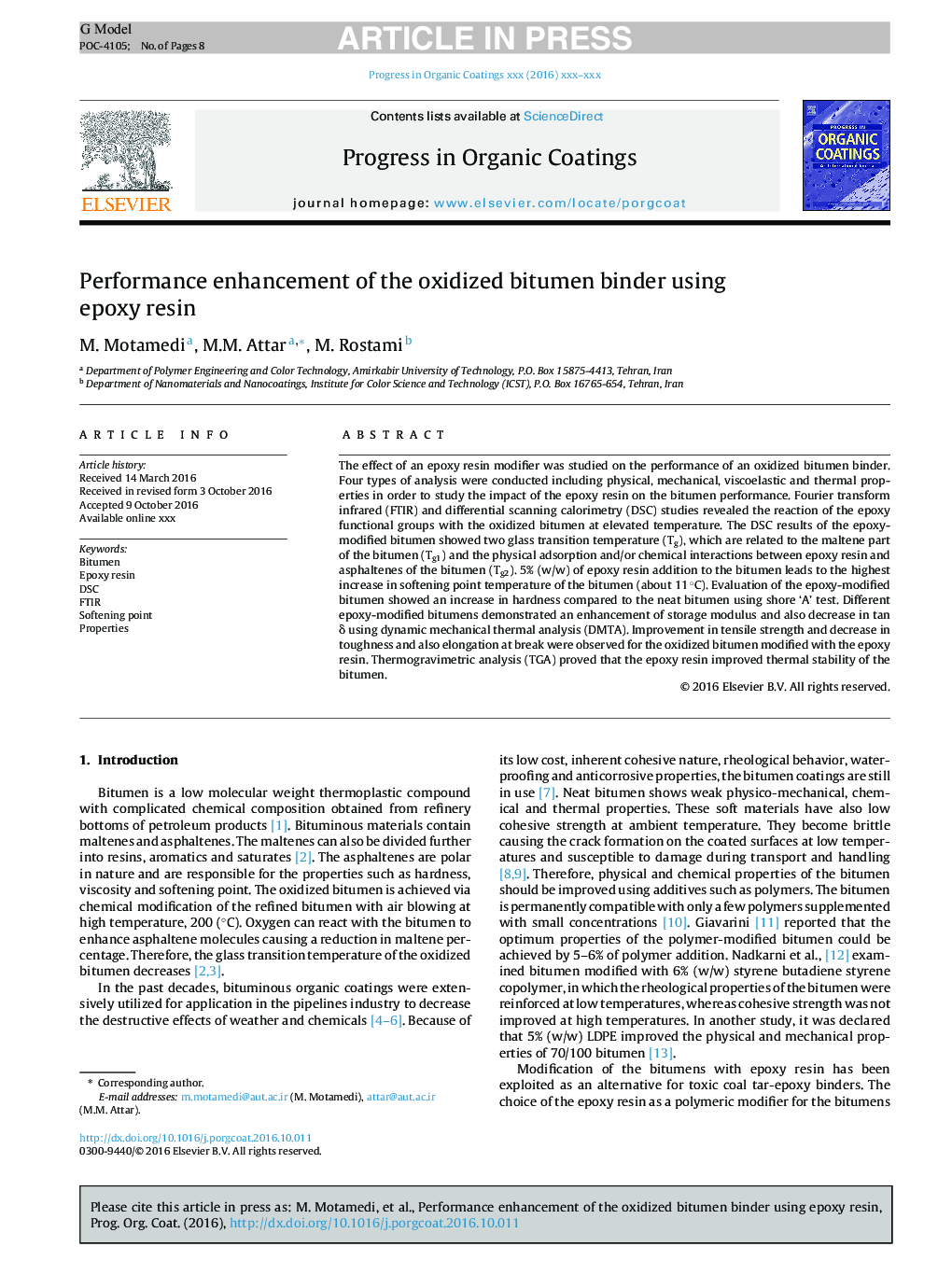| Article ID | Journal | Published Year | Pages | File Type |
|---|---|---|---|---|
| 4999375 | Progress in Organic Coatings | 2017 | 8 Pages |
Abstract
The effect of an epoxy resin modifier was studied on the performance of an oxidized bitumen binder. Four types of analysis were conducted including physical, mechanical, viscoelastic and thermal properties in order to study the impact of the epoxy resin on the bitumen performance. Fourier transform infrared (FTIR) and differential scanning calorimetry (DSC) studies revealed the reaction of the epoxy functional groups with the oxidized bitumen at elevated temperature. The DSC results of the epoxy-modified bitumen showed two glass transition temperature (Tg), which are related to the maltene part of the bitumen (Tg1) and the physical adsorption and/or chemical interactions between epoxy resin and asphaltenes of the bitumen (Tg2). 5% (w/w) of epoxy resin addition to the bitumen leads to the highest increase in softening point temperature of the bitumen (about 11 °C). Evaluation of the epoxy-modified bitumen showed an increase in hardness compared to the neat bitumen using shore 'A' test. Different epoxy-modified bitumens demonstrated an enhancement of storage modulus and also decrease in tan δ using dynamic mechanical thermal analysis (DMTA). Improvement in tensile strength and decrease in toughness and also elongation at break were observed for the oxidized bitumen modified with the epoxy resin. Thermogravimetric analysis (TGA) proved that the epoxy resin improved thermal stability of the bitumen.
Related Topics
Physical Sciences and Engineering
Chemical Engineering
Process Chemistry and Technology
Authors
M. Motamedi, M.M. Attar, M. Rostami,
